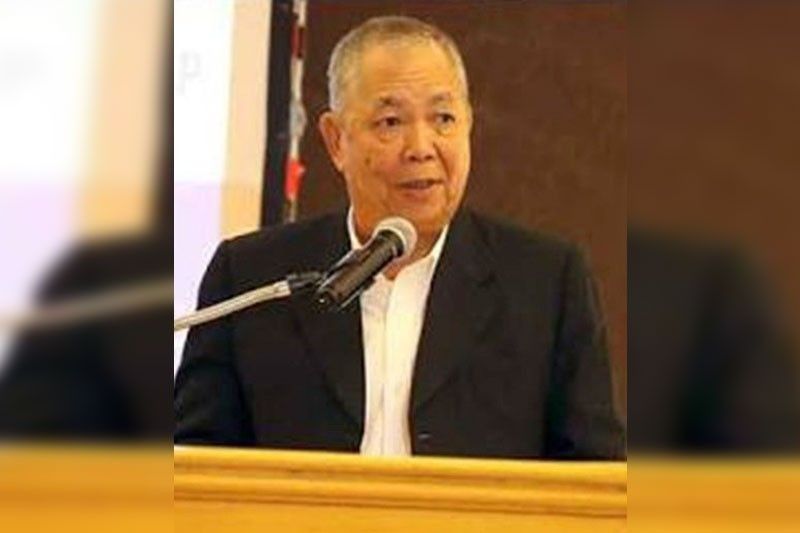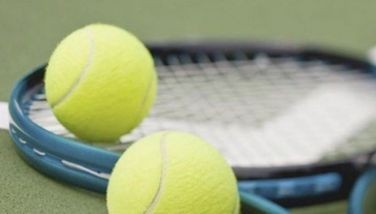Olympics in a fix

MANILA, Philippines — With fingers crossed and prayers for Divine Providence, POC first vice president Joey Romasanta said the other day he’s hoping the Tokyo Olympics will proceed as rescheduled on July 23-Aug. 8 next year “in fairness to the athletes” but the fate of the Summer Games remains in the balance because of the uncertainty in creating the vaccine to neutralize the COVID-19 pandemic.
“Without a vaccine, even assuming Japan’s situation is manageable, what about the other countries?” said Romasanta. “About 10,000 athletes are coming together from around the world for the Olympics and there will also be coaches, trainers, therapists and many others. Will they all be swab-tested? Will they be quarantined and if so, for how long? If anyone tests positive, where will she or he go?”
Romasanta said it’s been suggested to reduce the sports in the Tokyo calendar to lessen participation and lower the risk of transmission. “But if they do that, it will be a long debate and kawawa ang mga atleta na qualified but ‘di makakapunta because nawala ang kanilang sports,” he said. “The move to hold the Olympics has a historical purpose which is to preserve the Olympic cycle. It’s also to keep the commitment to sponsors. Japan has spent billions to prepare for the Olympics and the infrastructure is ready. What will happen to Japan’s investment without the Olympics?”
If the Tokyo Games are called off, it won’t be the first time for the Olympics. The outbreak of World War I in 1914 cancelled the 1916 Olympics which were scheduled in Germany. The 1940 Summer and Winter Olympics were supposed to be held in Japan but were both scrapped because of World War II. Japan actually forfeited its hosting rights and Helsinki was tapped to host the 1940 Summer Games and the German town of Garmisch-Partenkirchen the 1940 Winter Games. Neither took place. In 1944, London was supposed to host the Summer Games and Cortina d’Ampezzo in Italy, the Winter Games. But both were abandoned since World War II still raged.
Tokyo Organizing Committee president Yoshiro Mori said if the Games don’t push through next year, they will be scrapped with no more postponement. “Unless an effective vaccine is developed, I expect hosting the Olympics will be difficult,” said Japan Medical Association president Yoshitake Yokokura, quoted by Michelle Bruton in forbes.com. Before the postponement to next year, Japan had already spent $12.6 billion to prepare for the Olympics. The delay has added $2.7 billion to the bill. If the Olympics are cancelled, Japan will stand to lose over $22.3 billion. Included in the tab would be the opportunity loss of $1 billion in ticket sales.
Romasanta said Olympic-bound athletes will be hard hit if the Games are lost. Some may think of retiring because waiting four years for another Olympics might not be an option. Some may lose interest in sports and look into other ventures to make a living. Athletes who are prevented from training because of COVID-19 area restrictions are also in a bind.
Romasanta, who is concurrently LVPI president, said the postponement of the Asian Men’s Club Volleyball Championships in Nakhon Ratchasima, Thailand, was expected. It was scheduled last April 18-25 and tentatively reset to Aug. 10-17. “Athletes can’t be switched on and off, they follow a training program that comes in stages,” he said. “It takes a minimum of three months of continuous preparation for a competition. In the last SEA Games, our men’s volleyball team trained for three months, every day, starting at 7 a.m. in the Arellano Gym. John Vic (De Guzman) was our captain and led the team. The hard work paid off as we got the silver. At the moment, there’s still no approval from the IATF for teams in non-pro sports to restart training. Players want to play but the country has bigger priorities for everyone to be safe and to boost our economy.”
- Latest
- Trending


























